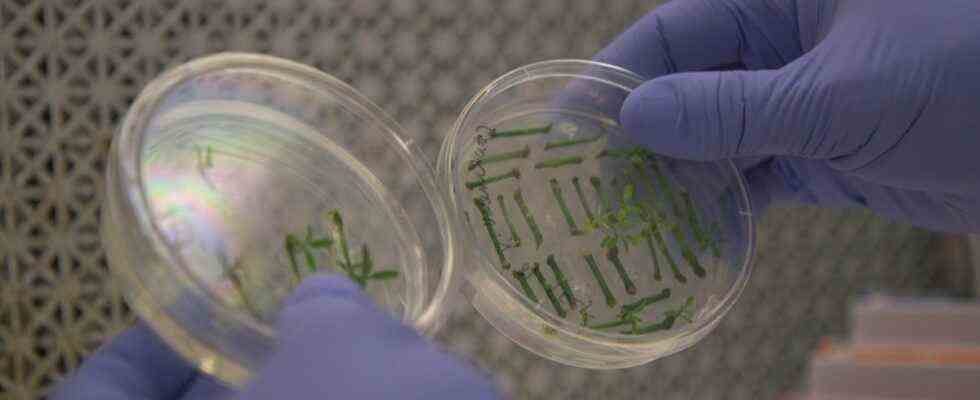Genome-edited maize or wheat could help save greenhouse gases, fertilizers and pesticides. Unfortunately, the debate so far has been shaped by ideology rather than evidence.
There is a simple solution to quickly reducing the climate-damaging greenhouse gases from agriculture: everyone should stop eating meat and switch to a plant-based diet. A lot of space that used to be used for animal feed would be freed up and then reforested. Since this is unlikely to happen any time soon and most people don’t want to go vegetarian, you have to think about second and third best options.
This includes, for example, genetically modified plants (GMO). If genetically modified sugar beet, rapeseed, maize, cotton and soybeans were to grow in the EU, CO₂ emissions could fall by 33 million tons, as a study has just calculated. That’s 16 times the effect of a much-discussed speed limit on German autobahns. You don’t have to share the arguments of the authors in every detail. They assume that increases in yields in Europe will automatically lead to less cultivation in rainforest areas, which is doubtful. The bottom line is that the statement that the use of genetic engineering can help to save emissions, fertilizers and pesticides is correct.
Fungus-resistant wheat, drought-tolerant corn, healthier soybeans
In the current study, only crops that have long been growing elsewhere were considered. Even greater environmental benefits could come from advanced genome-edited varieties. Techniques such as the Crispr-Cas9 gene scissors intervene more precisely than ever in the plant genome. With them, agricultural researchers have about Soybeans produced with healthier fatty acids, fungus-resistant wheat, bacteria-resistant rice or corn that resists drought. These properties are crucial to prepare fields for the consequences of global warming, such as long droughts.
Annoyingly, the EU Commission is not taking sufficient steps to allow genome-edited crops to be tested and grown. Instead, genome editing is equated with other genetic engineering methods in which genes from other species are introduced into the genome, which practically prevents their use. There is also no word on this in the traffic light coalition agreement, apparently out of consideration for some consumers who are particularly afraid of what sounds like genetic engineering. Countless studies have shown that this fear is unfounded. However, it is also fueled by some politicians – often by the same ones who are warning loudest about the climate crisis. You just need the right tools to deal with them.

